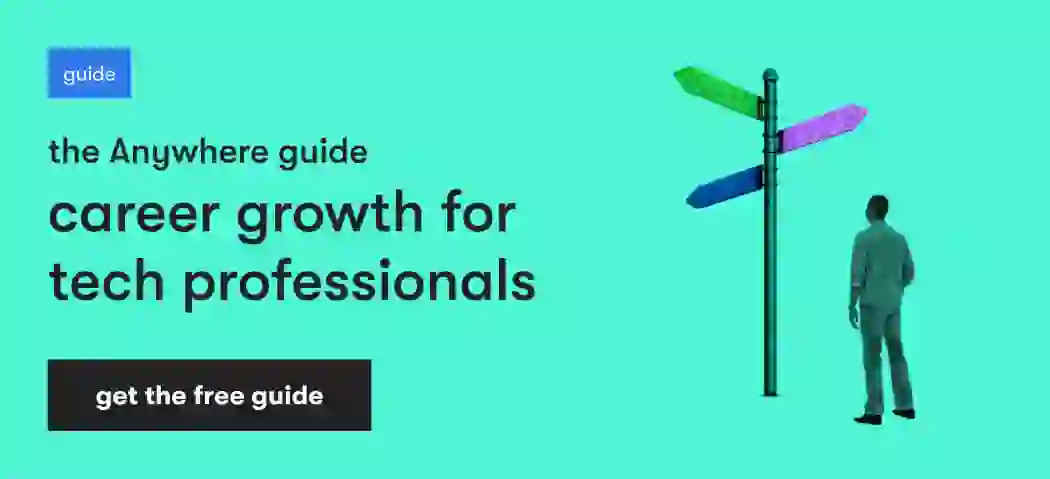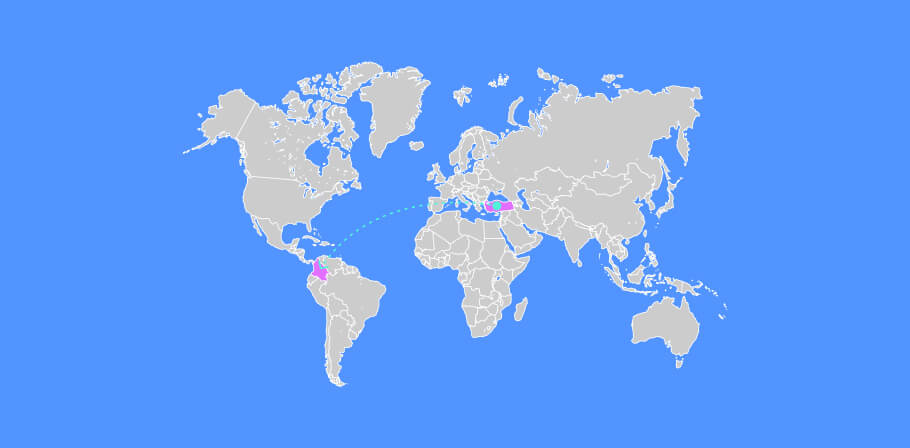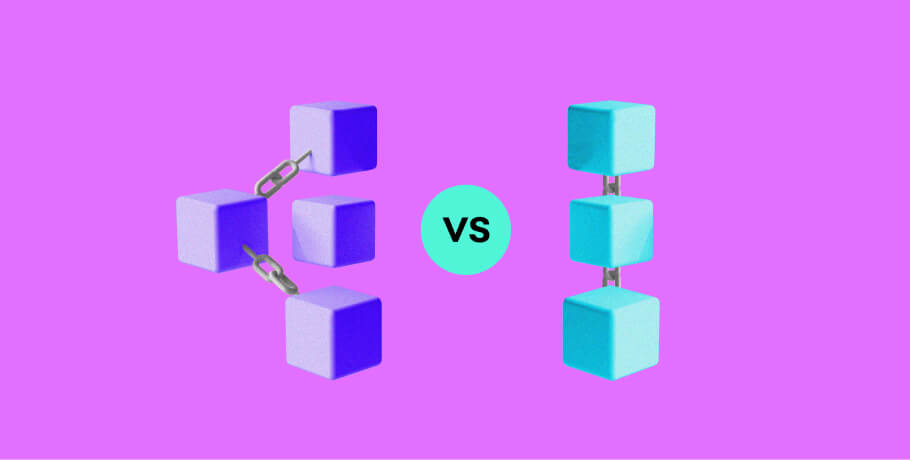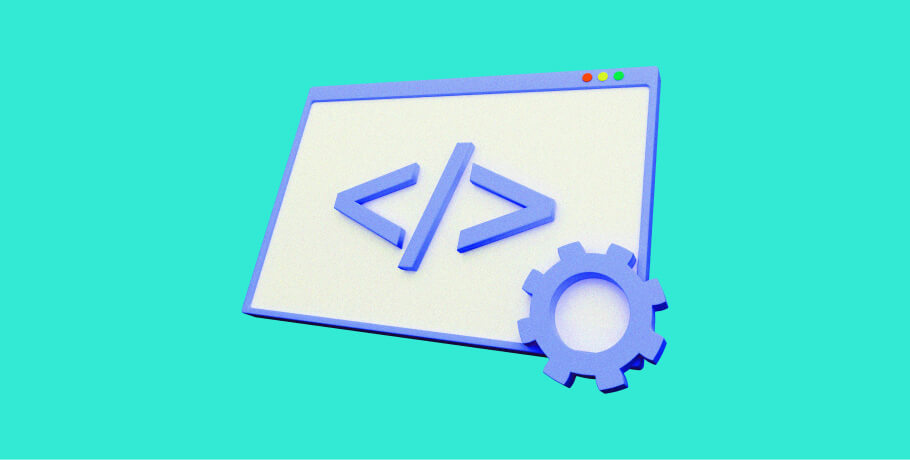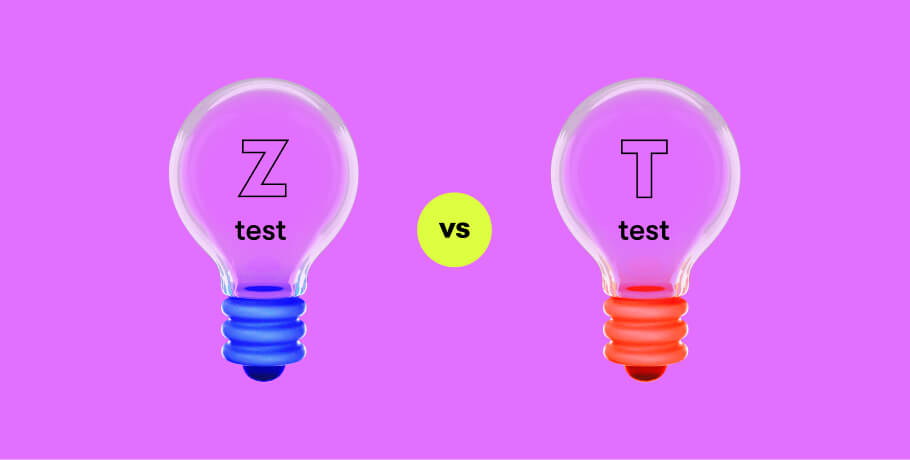“You can learn anything, it just takes some people longer than others,” says Anastasiya, EPAM Ryazan testing engineer. Anastasiya joined ЕРАМ as an HR specialist, moving to software testing engineer position after a year with the company.
In the interview, she told us how she changed her career learning new skills while continuing to work. She also shared advice for those who are looking to pivot their career.
I want to change my area of specialization. What should I do?
The short answer: really think about why it is you want and how serious you are about it. The intention to change areas doesn’t necessarily mean that you don’t love your job. Over time, people take interest in new things, and that’s normal.
Anastasiya: “I worked in HR for about five years altogether. Before ЕРАМ, I did recruiting, among other things, and I learned about a lot of professions. I regretted that at school I had no idea of how many interesting jobs there were in the world.
That’s when I first thought that I might be interested in testing. I was always attentive to detail, loved solving puzzles; not just observe the effects but look for the causes. However, I also liked HR: I could take on a variety of projects and build a career in people management as well. It wasn’t that I was tired of HR and wanted to do something else. My thinking was, ‘HR is interesting, but right now software testing seems more interesting to me.
I thought it over carefully - whether it was just a passing fancy, whether that was really what I wanted. When I was sure that it was a serious and carefully weighed decision, I started planning my next steps.”
Where to start on the path to a new specialization?
Like with any serious career step, it’s worth first discussing with your skill manager. These are dedicated specialists who support EPAMers in advancing their skills, getting new knowledge, and ensure smooth project staffing. Then talk to colleagues from the new field you chose. They’ll certainly have some valuable advice to share.
Anastasiya: “It was important for me to be transparent about the changes, both to myself and to the management. While in HR, I conducted adaptation meetings and talked about ЕРАМ values. One of those values is honesty. One aspect of this value is the need to be honest with yourself and those around you about what you want, what you can do, what you’re good at, and what you need to improve. You need to be honest with your skill manager as well: just share that you want to grow and move forward.
I share this value, and so I went immediately to my skill manager and told her what I wanted to do. Next, I went to the recruiter who selects people for external courses. That was followed by several interviews with the recruiter and Resource Development specialists. There were no manual testing groups that started any time soon, so I just went to automation. Honestly, learning a new profession was rather hard for me, as I didn’t have any technical knowledge. After two months, when the courses ended, I went to EPAM internal courses on manual testing. That was more comfortable and interesting.
Soon after I started the internal courses, I was offered the role of a project administrator. When I completed the courses, I stayed on as a tester.”
How to combine work and study?
Get ready: it won’t be easy. But it’s worth it. When you’re doing it for yourself, and you see the job of your dreams at the end of the tunnel, that really motivates you. Besides, trainers usually understand when their students have a high workload on their projects.
Anastasiya: “I spent a lot of time and energy on my studies. I studied after work and during weekends, read additional literature. External courses had two or three lessons a week. Some tasks took only one evening, while others much longer (like a forty-page task on SQL).
I wasn’t sure at first that I could do testing and do it well. I didn’t want to be ashamed of my results. When we got to automation at the external courses, I really started doubting myself. I was looking for ‘programming for dummies’ in the internet, then ‘programming for idiots.’ When I finally started getting the hang of it, it was an amazing feeling. In the early stages of studying it’s important to clearly see what you can do and what you can’t and choose what fits your skills. I decided to switch to manual testing.
I learned manual testing at internal courses while working on my project, which sometimes took all of my time. I got behind the group and went at my own pace. Thankfully, there was the option to learn at one’s own pace Resource Development pros want to teach people and understand why the company needs that, so if a student is really busy with their project, they can find a compromise.
Altogether, my studies took about half a year: the external courses took two months, and the internal courses about three.”
How to get ready for a change?
Changing your life is not as easy as pushing a button. Get ready for a long journey. When the going gets tough, remember why you started the journey – that will help you to understand that your efforts are moving you in the right direction. If you work on it every day, you’ll get results.
Anastasiya: “I tried to take a common-sense approach to my studies. I figured that to become a tester, I needed certain knowledge. And if I get that knowledge, then I can try myself in a new profession. If not – it means I made the wrong choice, and testing isn’t my thing.
So, I wasn’t overcoming anything, not pushing towards a goal with gritted teeth. I was just studying. If it had become unbearable, I would have just concluded that software testing wasn’t for me. If you work on it every day, there will be a result, it takes some people longer than others.
In spite of my workload, I never wanted to quit. Yes, I had more work, but that was what I wanted. It’s not like that extra work jumped out at me – I sought it out myself.”
Does this mean that the skills I already have will be useless?
No. It will help you when you least expect it.
Anastasiya: “The soft skills that are required for an HR specialist helped me out as a testing engineer Testing engineers are in constant communication – with other testers, software developers, and business analysts.
My recruiting experience made me comfortable asking questions. Some colleagues have difficulties with that at the beginning: they’re afraid to look unprofessional when something isn’t clear from the beginning. But I think it’s far worse to pretend you understand, only to come back two hours later with questions.”
How will my colleagues see me in my new role?
We can’t speak for everyone, but we think you’ll be fine. We were all newbies once, and all knowledge is valuable regardless of when you got it.
Anastasiya: “My transition was smooth, and my colleagues thought it was great that I was trying something new. People said I looked satisfied. The changes didn’t surprise anyone, perhaps because they happened gradually. I went from HR to testing in half a year, with a project administrator as a transition role.
The team was ready to share knowledge – I could ask anyone a question and get not only an answer but advice on where to find out more about the subject. I’m thankful to my colleagues for a comfortable transition.”
When will I feel comfortable in my new role?
Not immediately, but soon enough. At first, you’ll feel like a newbie, but experience comes with time, and then comes confidence. It won’t even take you a year.
Anastasiya: “I never really felt all that unconfident. I didn’t have the knowledge and experience, but I knew it would come. And that’s what happened. After nine months in testing, I was promoted to middle specialist, started taking part in interviews, teaching newcomers, and helping them with project onboarding. That’s when I felt that I was comfortable – and I wanted to do more.
During a testing pool meeting in Ryazan once, I heard that RD needed instructors. I’ve already had the experience of leading trainings, and I thought I could be of help. I’m grateful to RD, I liked studying there myself and now I like teaching there. ЕРАМ training centers get not just students and recent graduates – there are a lot of people there who want to change their life, as I once did. It brings me joy when people feel that they are where they want to be and love their job – and it’s great that I can help them with that.
For me, it was a logical continuation of my career. I spent five years in HR hiring personnel and leading training. I don’t feel that I did something impossible, and neither do my colleagues. Life goes on, things change.”
The bottom line: what to do if you want to learn a new profession
- Give it some thought. What reasons are behind your desire to make a change?
- Discuss your plans with your skill manager. They can help you only if they know your plan.
- Speak with experienced colleagues from the new field you are interested in. They can share advice.
- If you don’t have serious reasons against trying the new field, then try it. ЕРАМ offers an opportunity to pivot your career while staying in the same company.
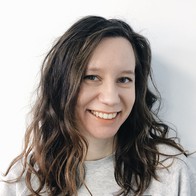
Explore our Editorial Policy to learn more about our standards for content creation.
read more



